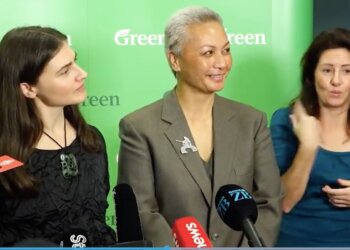The True Culprit Behind Our Shrinking Wallet
Are you feeling the pinch of rising prices and a shrinking bank account? While the government likes to blame the pandemic, war, or natural disaster, its time to look at the real villain: government policies and unchecked money printing.
Despite claims that global events are making us poor, it’s crucial to recognise that not all countries face the same fate. The harsh reality? Its mostly English-speaking, socialist-leaning governments that have left their citizens in a financial rut.
Government and central banks have been churning out money at breakneck speed to fund misguided policies. Floods and wars make convenient scapegoats, but the root cause lies in the hands of those who control the money supply.
Economist Milton Friedman once said, ” Inflation is always and everywhere a monetary phenomenon …” In simple terms, inflation is a direct result of excessive money printing, and it acts as a hidden tax on everyone.
Where Did The Money Go?
Billions of dollars were spent by government over the past few years, where has all the money gone? Roads, schools and hospitals remain neglected, while countless funds are squandered on consultants and dubious handouts.
It’s time to hold governments and central banks accountable for the financial quagmire we find ourselves in. By acknowledging the true cause of our shrinking wealth, we can push for policy changes that promote economic growth and prosperity for all.
Don’t let the smoke and mirrors of global events distract you from he real issue. Knowledge is power, and by understanding the true culprits behind inflation, we can work together to demand better governance and reclaim our financial future.
By John Kenel
Assured Property
FULL ARTICLE FROM NZHERALD BELOW:
RBNZ: We need to accept we’re poorer.
By Jenée Tibshraeny
The Reserve Bank (RBNZ) is doubling down on Governor Adrian Orr’s “cool your jets” call, suggesting the public needs to do its bit to help dampen inflation.
If businesses, households and the Government don’t lower their expectations around profit margins, wage growth and spending, inflation will persist, interest rates will need to remain high, and the economy will take a greater hit.
This was a key message RBNZ chief economist Paul Conway made in a speech delivered at a conference on Thursday afternoon.
Conway also stressed the RBNZ remained “deeply committed” to lowering inflation, and hinted overseas bank collapses weren’t prompting the RBNZ to soften its fight against inflation.
“Household balance sheets are in good shape in aggregate and the banking system is very well capitalised, meaning there is no conflict between monetary policy and financial stability,” Conway said.
He didn’t comment further, or more specifically, on the impact the collapse of Silicon Valley Bank and the sale of Credit Suisse to UBS would have on the RBNZ’s monetary policymaking.
Rather, Conway took the speaking opportunity to highlight the importance of expectations in the execution of monetary policy, or the RBNZ’s efforts to cool inflation by aggressively lifting the official cash rate (OCR).
“The effectiveness of higher interest rates in bringing balance to the economy and lowering inflation depends on how realistic and pragmatic New Zealanders are in accepting that we are worse off than we otherwise would be given global events of the past few years and recent storms,” Conway said.
“As Governor Adrian Orr puts it, the people of planet earth are poorer because of the pandemic and war. The recent floods in Auckland and the cyclone along the East Coast have also reduced wealth and prosperity in New Zealand.
“In practice, this means accepting the fact of higher prices for some producer inputs and consumption goods, meaning lower real wages and profits than otherwise.
“If businesses and workers try to push their real profit margins and real wages to where they would have been if not for the pandemic, the war, and storms, then the more likely it is that high inflationary pressures persist into the future.”
Conway said “resisting the squeeze” on incomes and spending power would prompt the RBNZ to “increase interest rates further or hold them up for longer”. This would hamper economic growth, deepening any recession.
“The path back from persistent to low inflation always involves some output losses and lower incomes overall. The size of those losses depends on how realistic we all are in adjusting to new economic realities and in expecting inflation to fall back to target.”
Conway also noted how the Government’s response towards Cyclone Gabrielle and flooding in the upper North Island would affect interest rates.
He said that if the Government diverted resources from existing projects to the rebuild, or funded the rebuild using “increased government revenue” (ie higher taxes), resources would be freed up, so inflation wouldn’t be exacerbated and there wouldn’t be a need for interest rates to go higher.
By making this statement, Conway implied funding the rebuild using new borrowing or pushing on with existing projects in addition to the rebuild would exacerbate inflation in the current capacity-constrained environment.
Conway noted the amount of uncertainty there was globally.
He also pointed to uncertainty around knowing when the RBNZ has hiked interest rates enough to curb high inflation.
“The effects of the 450-basis-point increase in the OCR [to 4.75 per cent] over the last 18 months are still percolating through the economy,” Conway said.
“[T]he rapid speed of rate increases creates additional uncertainty about how the effects of the tightening will play out.
“It is also unclear whether inflation expectations are falling fast enough to mean current and projected OCR settings are consistent with positive real interest rates, and thus likely to be disinflationary. In part, this comes down to how convinced people are that MPC [Monetary Policy Committee] will do what’s necessary to get inflation down.”
The MPC will next review the OCR on April 5.
Source: NZHerald







